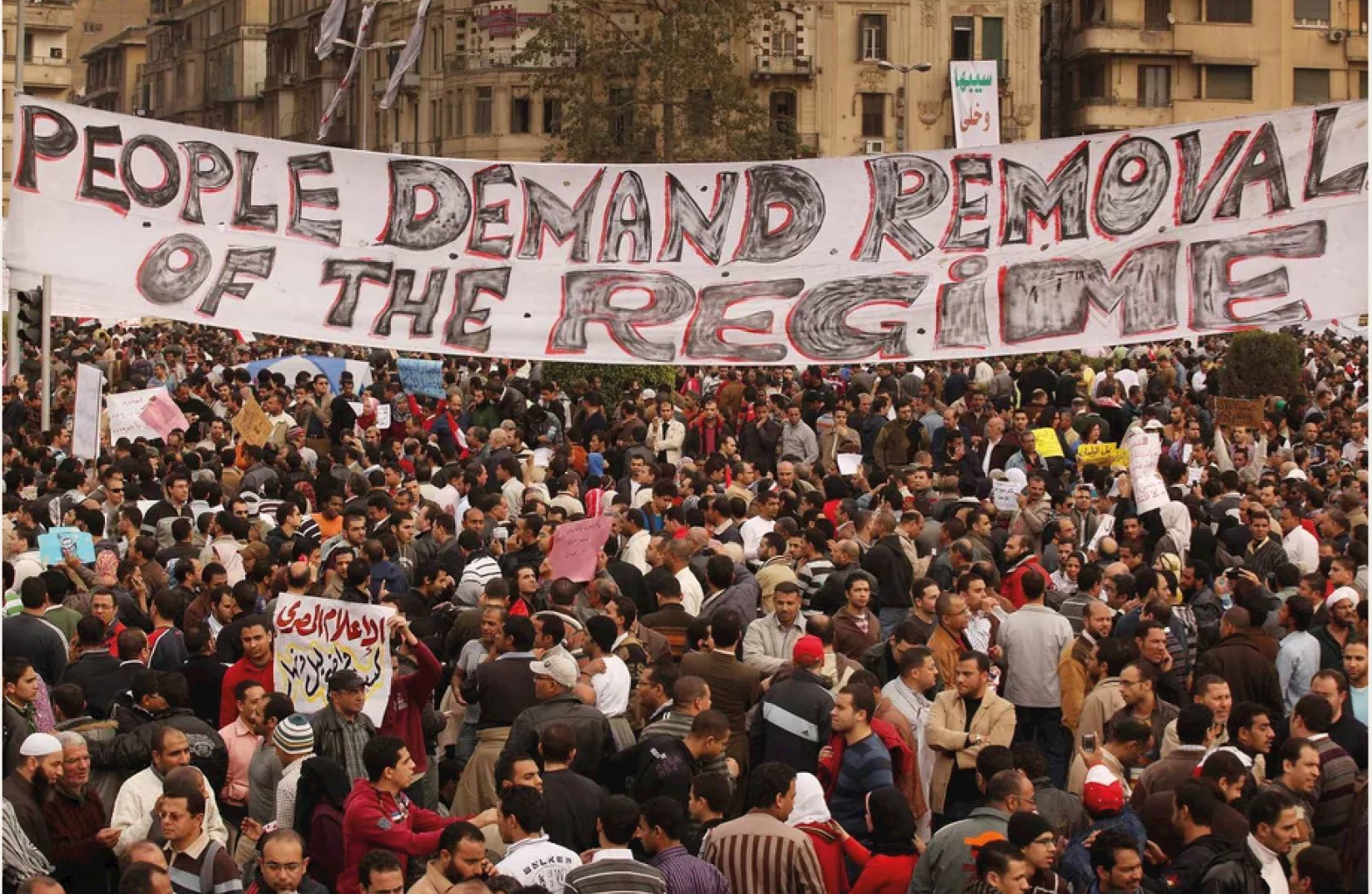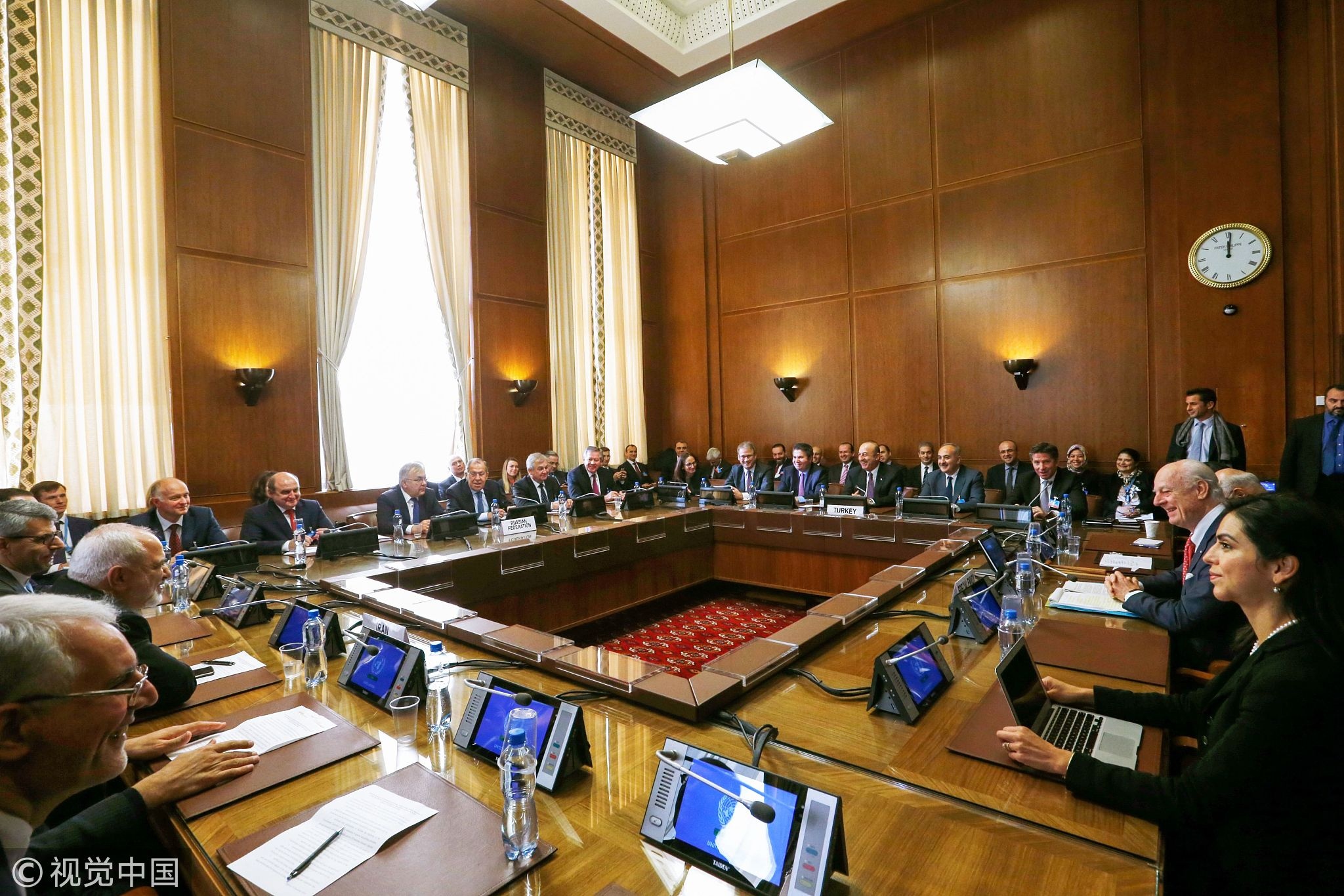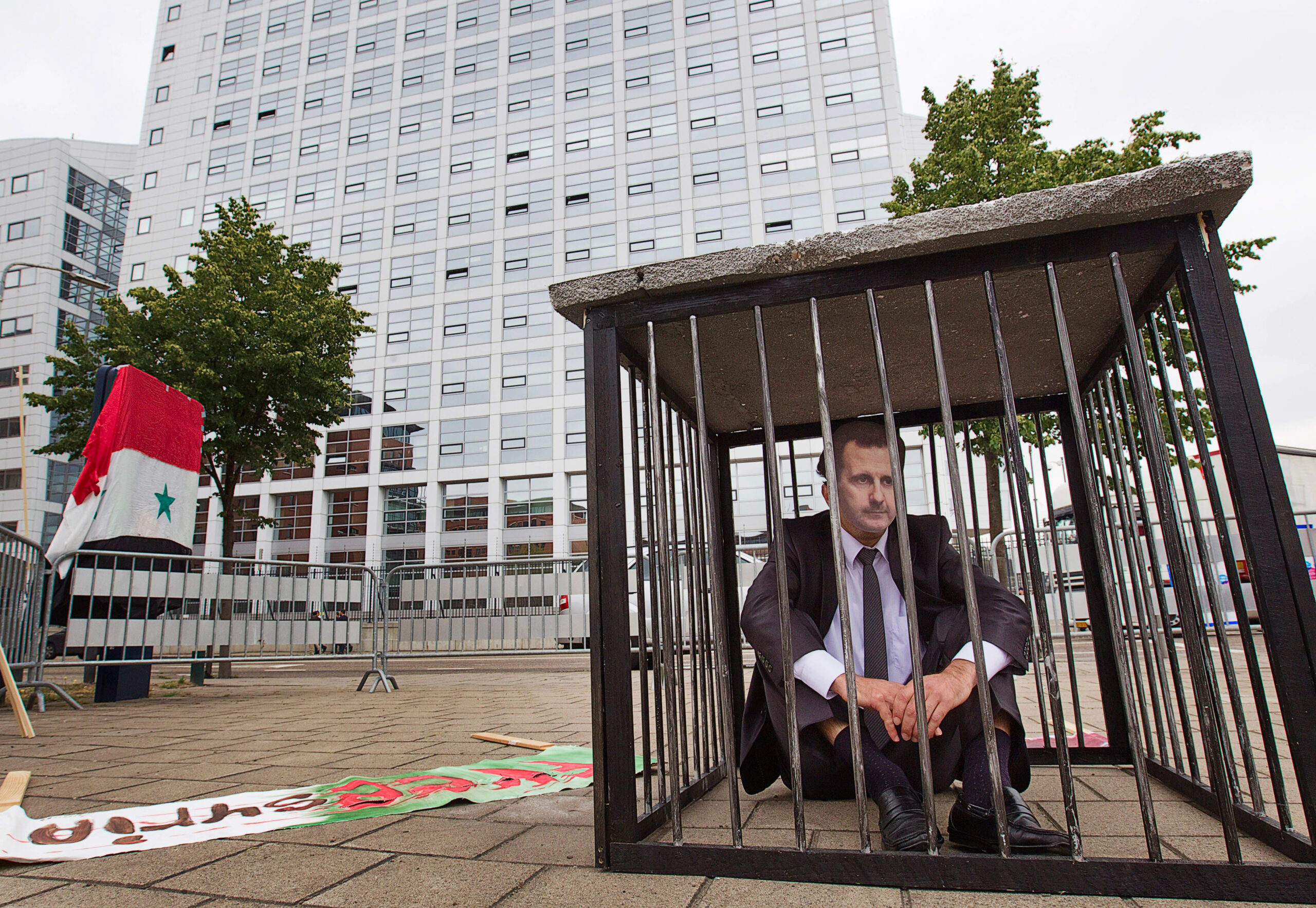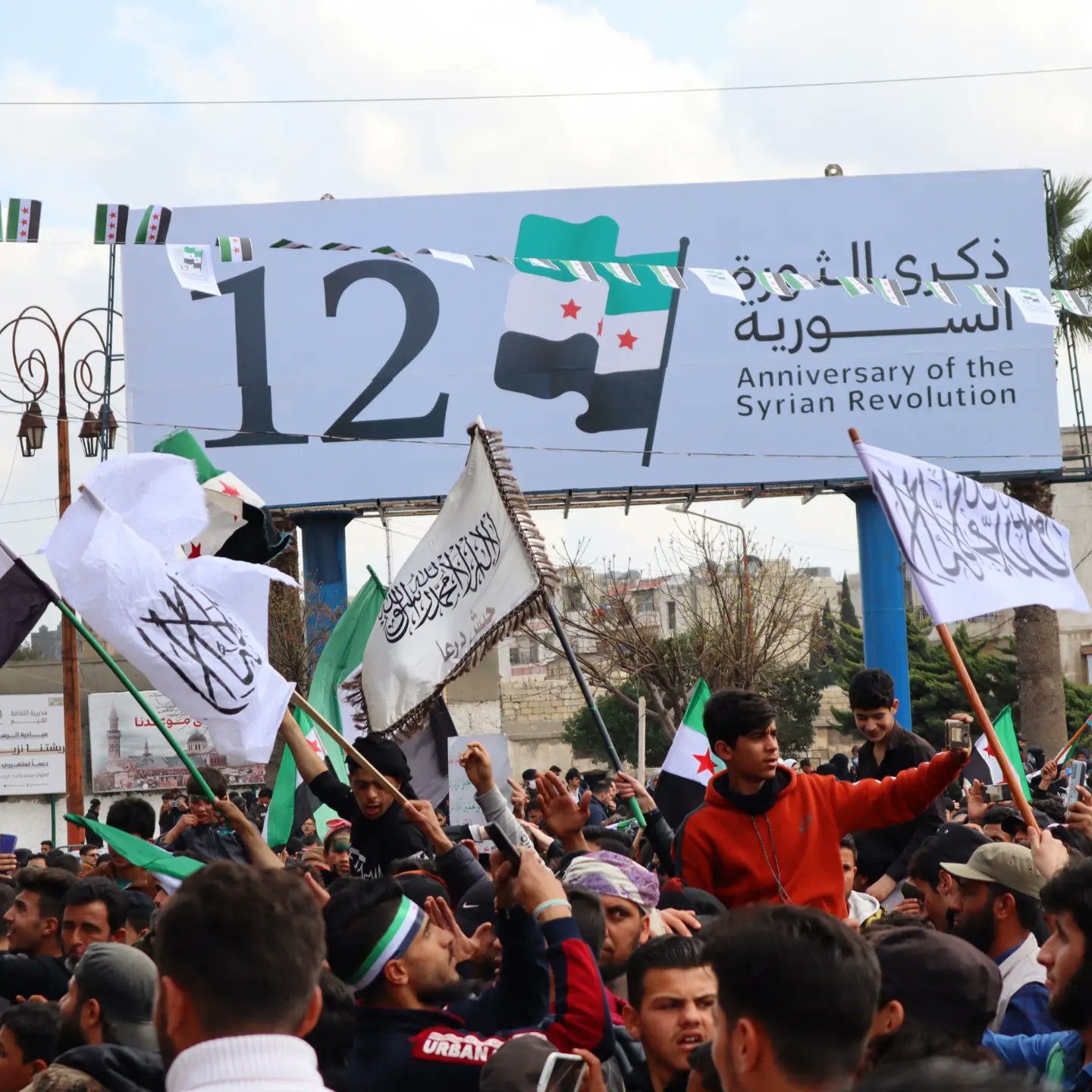
Written by Abdulwahab al-Khateeb
It was 12 years ago during the so-called Arab Spring that the people of Syria took to the streets in peaceful protests to decry the many woes they felt were plaguing their country and lives. While some complained of the economy, unemployment, and declining public services, the disparity between the wealthy and poor most voiced concerns with violent repression, corruption, a lack of democracy and freedoms, and the wish to be free of the one family who had ruled them with an iron fist for over four decades. The unifying mantra of the revolution became, “the people want to remove the regime!”
However, the minority-controlled family-run government of Bashar Assad would not tolerate any threat to its hegemony nor even the thought of such, and so the brutal crackdown began. Protesters were shot and arrested in mass, and women, children, men, young and old were tortured and killed, raped, and abused until what began as peaceful protests became an armed revolutionary movement devoted to protecting the people and gaining their rights to freedom, safety, and dignity. Over the next 12 years, territory changed hands and various groups and nations rose and fell in the revolutionary arena, but one thing remained a constant unified focal point – Bashar Assad.
“Assad or we burn the country!” was the rallying cry, for his loyalist militias and supporters, for Assad’s allies Iran and Russia there was no option, political or otherwise, in which Assad would be removed, yet for the free people of Syria, the ones who had suffered decades under the Assad dynasty, there could be no peace and no freedom while this brutal dictator and war criminal remained. So Assad became a “red line” for all sides, his supporters would accept nothing but his rule and his opponents couldn’t bear to live under a man who had terrorized and abused them for over two decades.

Room for Compromise?
Levant 24 (L24) spoke with several activists about the state of the Syrian revolution and what the future may hold for Syria and the revolution and if they foresaw any political solution or compromise with Assad and his regime in hopes of ending the 12-year-long conflict.
A media activist from the northern countryside of Aleppo, Abdul Karim al-Halabi, told L24, “There is no revolutionary in the liberated north who accepts that the regime will be part of the future of Syria or part of the solution. Today we all know that this criminal regime has killed and displaced thousands of people.”
Ahmad Ghajar, an activist from Idlib agreed, saying, “He (Assad) cannot be part of Syria’s future, as the Syrian people who experienced the rule of the regime don’t accept that it remains in power in the future.”
Umm Abdul Baset al-Sarout, mother of famous revolutionary Abdul Baset told L24, “We do not want Assad or any of his men, and we do not accept any ‘solution’ in which Assad remains in power … and we will continue our revolution, Allah willing!”
In a statement regarding Syria’s prospects and the resolution of the conflict, Josep Borell, High Representative of the European Union for Foreign Affairs and Security Policy said, “The future of Syria belongs to no single faction and to none of the outside powers. It is for Syrians to decide.”

While many agree that the people have the right to self-determination, what are the practical steps and means by which they can actualize their will and what form might a “political solution” take in Syria? “The political settlement,” opines Ghajar, “is to form a political body that is supported militarily and popularly on the ground and has representation from trusted personalities. This body can open communication channels with friendly and neighboring countries and establish legitimate offices representing the Syrian revolutionary cause in these countries to earn international recognition.”
“No country should decide the fate of the Syrian people,” Halabi said, “because they (the people) are the ones who decide their fate, as they are the ones who sacrificed and struggled, every family has a martyr, a detainee, or a missing person. The first and last word is for the free Syrian people.”
Accountability is a Must
As mentioned by Halabi there is nearly no one in Syria that hasn’t suffered due to the war and for a sustainable and actionable peace in Syria, there must be justice and accountability as Beth van Schaack, Ambassador at Large for Global Criminal Justice told Babel in an August 2022 interview, about the importance of justice to stabilizing and unifying a post-war Syria, noting that without accountability you will, “end up with a society that has deep fissures. Those fissures are unlikely to resolve themselves, so, that’s where the field of transitional justice should be helpful.”
“All perpetrators of war crimes must be held accountable,” says Ghajar noting the need for justice, the crimes, he posits, should occur “in local legitimate, revolutionary courts, that implement immediate field provisions against them without hesitation, this is in order to correct the actions of those who try to oppress any one of the Syrian people.” While Halabi emphasized that, “the regime and its supporters, must not only be removed but held accountable.”
A system of accountability is not solely a matter of justice but has broader implications and effects on both the Syrian conflict and global stability. It’s requisite for ending one of the greatest refugee crises today and alleviating the plight of the millions of displaced as pointed out by Senior Human Rights Watch (HRW) researcher Hiba Zayadin who writes that there should be, “concrete measures to ensure refugees and displaced Syrians are protected from retaliation and have a home to return to … and reform [in] the Syrian state apparatus, particularly the security and justice systems, to respect the rights of Syrian citizens and hold those responsible for abuses to account.”

In the light of recent developments involving the International Criminal Court’s charges against Putin for Russia’s conduct in Ukraine, it’s important to see the role transitional justice plays in conflict resolution, the Harmoon Center’s, Ronan Tynan asks, “If there is no punishment for Assad for committing some of the worst horrors of our time in Syria, then how can we also expect Putin to be held to account?” Highlighting that events in Syria are far-reaching with a broad global impact as noted by the observations of many analysts regarding the correlations between years of unchecked Russian crimes in Syria and the brazen brutality and inhumanity seen in Ukraine.
An apparatus for holding Assad and the regime to account is also a key stepping stone on the path to peace and as Nawaf Obaid and Joel Rayburn of the Telegraph wrote, “Bringing the perpetrators of war crimes in Syria to justice would help to generate the momentum needed to secure a genuine political settlement to the war in Syria.”
Twelve More Years?
It’s been 12 years of struggle and hardship yet how much longer can the people continue given the burdens of over a decade of war, recent earthquakes and an international community that seems to have grown weary of their plight?
“We can no longer fight,” Ghajar told L24, “the pressures exerted on the people and the fighters are no longer bearable. From the difficulties of securing a decent living and the lack of job opportunities, the decrease and theft of aid, the failure to secure a good income for the fighters, especially by the factions affiliated with Turkey, and the restrictions imposed on them with regard to launching any battle against the regime.”
While his countryman Ghajar sees the situation as bleak Halabi, defiantly declares, “I’m ready to continue until the end of my life, even if I was martyred, the revolution will remain in our blood, as there is no family that has not made sacrifices. These families cannot forget the killer of their children and the one who displaced them from their homes. They cannot forgive the one who brought mercenary forces from around the world to kill the free Syrian people.”

Al-Sarout said, “It’s okay to continue for another 12 years or more. We are patient, and we will be able to win by our strength, Allah willing, as there are still honest and honorable people who follow the path leading to achieve the goals of the revolution.”
Borell warns that “Denying Syrians’ needs and demands, denying them their dignity, will only waste more time and bring more misery,” yet observes, “they are not giving up and neither are we.” Whether the Syrian people will be able to achieve their goal of freedom and dignity free of Assad or the justice of seeing the regime and its allies held to account is uncertain, yet what is sure is that many still retain the will and desire to continue to resist as has been heard in the last few days in the many towns, villages, and cities of the liberated lands, “the people want to remove the regime!”





